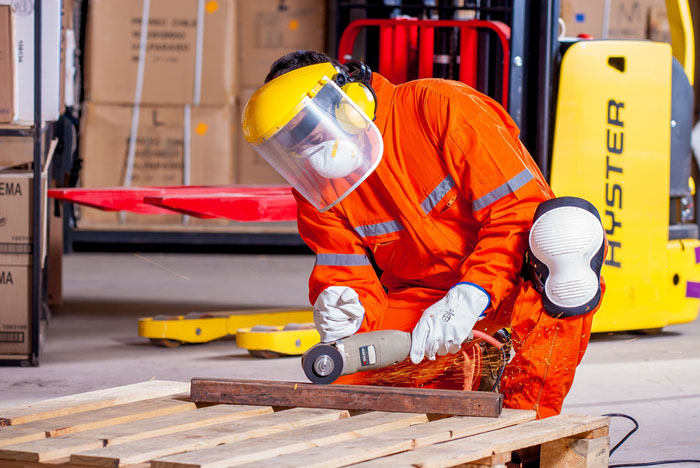 By 2023 occupational hygiene has been practised for around 300 years. Occupational hygiene is the practice of managing health risks at work such as inhalation of harmful substances or risk management to prevent accidents. It’s about controlling exposure to hazards, some of which are unavoidable.
By 2023 occupational hygiene has been practised for around 300 years. Occupational hygiene is the practice of managing health risks at work such as inhalation of harmful substances or risk management to prevent accidents. It’s about controlling exposure to hazards, some of which are unavoidable.
Occupational hygiene covers both the businesses workforce, and the wider community. This includes ensuring that environmental noise and other hazardous levels are at a minimum so that the public won’t be at risk.
Types of occupational hygiene
The five types of occupational hygiene risks are:
There are many ways to control environmental hazards, it’s more about what is suitable for your company. All occupational hygiene services aren’t needed for everyone, but you may need more than one.
We suggest one, or some of the following services for any business where hazards are prevalent.
Services for managing chemical exposure include:
Contact us if you have any questions and we can offer guidance for your needs.
Merry Christmas
This holiday season, we at Walker Health and Safety Services Limited pause and take advantage of the season to express our gratitude and appreciation to you for doing business with us.
Wishing you a year full of happiness and success.
All the best for 2023!
Stress affects different people in different ways, and everyone has a different method of dealing with it. The chemicals that are released by your body as a result of stress can build up over time and cause various mental and physical symptoms.
Stress is an unfortunate but often unavoidable side effect of our busy lives. Having on-hand methods for managing stress is a good way to combat its physical, mental, and emotional impact. Click here to read our employee fact sheet on stress in the workplace.
During COVID many people were stressed about the pandemic, their work, their families and friends. Click here to read our blog published at that time.
Employers need to be proactive with employees to help understand what steps they need to take to proactively support their mental health so that you can focus on growing the business.
Contact us should you require advice or assistance.
Monday 19th September is to be a bank holiday for the State Funeral of Queen Elizabeth II.
This is a historic moment for the United Kingdom and a significant global event.
We have decided to come together with the nation to commemorate Her Majesty’s reign.
Therefore, Walker Health and Safety Services will not be operational on Monday 19th September 2022. Normal operations will resume on Tuesday 20th September.
As the ‘medical considerations’ section of the HSE publication Rider-operated lift trucks explains, although there is no specific legal requirement for forklift truck drivers to undergo medicals, it is recommended that they do. This is because an employer would need to ensure those selected are able to safely control and operate lift trucks. Drivers should be reasonably fit, both physically and mentally, and possess the learning ability and potential to become competent operators.
Workers should be free from disabilities, either physical or psychological, that might pose a threat to their own health and safety or the safety of others who might be affected by them operating lift trucks. Fitness for operating should always be judged on a case-by-case basis. You will need to do a risk assessment to identify any hazards associated with the job and working environment and to identify areas of concern. Never allow anyone who is unfit because of alcohol or drugs (prescription or recreational) to drive a lift truck.
People with disabilities do not need to be excluded and may have developed skills which compensate for their disability. You should obtain medical advice about their suitability for the particular work they will be required to do. Reasonable adjustments may be required to enable some disabled people to work as lift-truck operators. The Equality Act 2010 is likely to apply.
The Drivers’ Medical Unit at the Driver and Vehicle Licensing Agency (DVLA) publishes guidance aimed at health professionals regarding lift trucks on the road, but this can be applied to all work with lift trucks.
For most work with lift trucks, a standard of fitness equivalent to that for the Group 1 entitlement (ordinary driving licence holders) would be appropriate. Activities such as working in a particularly demanding environment, working at night, or moving highly toxic or explosive materials would probably be more appropriate to the Group 2 entitlement (heavy goods vehicle licence holders).
You may choose to screen potential operators before placement and then follow the guidelines for Group 2 licences, which require medical examination every five years from age 45, and every year from age 65 (in line with licence renewal periods). Always seek medical advice where there is any doubt about a person’s fitness to operate a lift truck.
It may be useful to apply a selection test to avoid wasteful attempts to instruct unsuitable trained. Read more about medical fitness and FAQs.
Contact us for further information.